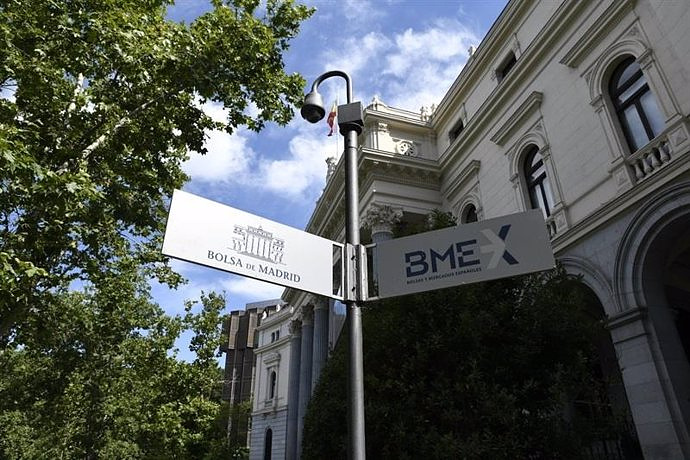The conservative wing has managed to leave out the candidate of the progressive sector, magistrate José Manuel Bandrés
MADRID, 27 Dic. (EUROPA PRESS) -
The members of the General Council of the Judiciary (CGPJ) have unanimously elected this Tuesday in their second vote the two magistrates who are responsible for designating the Constitutional Court: the Supreme Court (TS) magistrate César Tolosa and the retired magistrate of the (TS ) Maria Luisa Segoviano; both proposed by the conservative wing of the governing body of the judges, although Segoviano was initially on the list of 9 names of the progressives.
The conservative wing of the CGPJ has obtained support for its two candidates and, therefore, has managed to leave out the option of the progressive sector, Supreme Court magistrate José Manuel Bandrés.
As reported by the CGPJ, at the time of the vote five members of the progressive wing --Mar Cabrejas, Álvaro Cuesta, Clara Martínez de Careaga, Pilar Sepúlveda and Concepción Sáez-- have stated that they were resigning from Bandrés "for institutional reasons."
Until now, the balance of forces in the CGPJ --with 8 progressive members and 10 conservatives-- had made an agreement impossible. In the December 20 vote, the two nominees for the majority sector, Tolosa and Pablo Lucas, obtained 10 votes, while Bandrés obtained 7, all that the progressive bloc could get because the member Enrique Lucas abstained as a result of his brother was one of the names on the table.
For the white smoke, 11 yeses were necessary, something that until now had not been possible because the members had voted en bloc and none had stepped down to change the balance. The current rules impose a three-fifths majority to send candidates to the Constitutional Court and allow each of the 18 members that currently make up the CGPJ to propose and vote for two applicants.
CGPJ sources consulted by Europa Press indicate that the conservative wing opted to include a progressive name in its tandem (first with Lucas and now Segoviano) so that their counterparts would resign from Bandrés, a magistrate on whom the conservatives had imposed a tacit veto.
Although the progressive sector insisted on the name of Bandrés for this second vote, at the last minute it has given up and has agreed to endorse Tolosa and Segoviano. Thus, the 18 members have unanimously agreed to support both.
With this movement, the situation is unblocked in the Constitutional Court, which since June 12 had pending renewal of the four magistrates that make up the third that the Constitution mandates to replace the Government and CGPJ: Pedro González-Trevijano and Antonio Narváez, appointed in their day by the Executive of Mariano Rajoy; and Juan Antonio Xiol and Santiago Martínez-Vares, appointed at the time by the CGPJ.
The two candidates chosen by the governing body of the judges will join the two selected by Moncloa last November: the magistrate of the National Court and former Minister of Justice Juan Carlos Campo and the former director general of the Ministry of the Presidency Laura Díez.
Now, the Constitutional Plenary must analyze the suitability of the candidates, verifying that they meet the legal requirements to be a Constitutional magistrate -- being Spanish and judges, prosecutors, university professors, civil servants or lawyers, all of them jurists of recognized competence with more than 15 years of professional practice--.
At first there were doubts that the Constitutional Court could examine and approve the two Executive candidates without the two from the CGPJ, because the Constitution establishes a renewal by thirds. Faced with this scenario, the PSOE and Unidas Podemos proposed via an amendment --in the law that repealed sedition-- to modify the system of election and arrival of the two candidates to the court appointed by the CGPJ. This path, however, was paralyzed by the Constitutional Court itself, since it admitted applying the very precautionary measures requested by the PP in an appeal filed against the processing of said amendments in the Cortes Generales.
This Tuesday, in a press conference after the Council of Ministers, the president, Pedro Sánchez, assured that if the members of the CGPJ reached an agreement this afternoon to choose their two candidates, the "urgency" to present a bill that reforms the system and the majorities necessary for those appointments "would not be the same."

 Exploring Cardano: Inner Workings and Advantages of this Cryptocurrency
Exploring Cardano: Inner Workings and Advantages of this Cryptocurrency Seville.- Economy.- Innova.- STSA inaugurates its new painting and sealing hangar in San Pablo, for 18 million
Seville.- Economy.- Innova.- STSA inaugurates its new painting and sealing hangar in San Pablo, for 18 million Innova.- More than 300 volunteers join the Andalucía Compromiso Digital network in one month to facilitate access to ICT
Innova.- More than 300 volunteers join the Andalucía Compromiso Digital network in one month to facilitate access to ICT Innova.-AMP.- Ayesa acquires 51% of Sadiel, which will create new technological engineering products and expand markets
Innova.-AMP.- Ayesa acquires 51% of Sadiel, which will create new technological engineering products and expand markets Illa does not clarify whether he will agree with Junts and Aragonès and Rull face a lack of unity
Illa does not clarify whether he will agree with Junts and Aragonès and Rull face a lack of unity At least twelve Palestinians die in Israeli bombings against Rafah
At least twelve Palestinians die in Israeli bombings against Rafah Gaza War | Direct: The Israeli Army takes the Palestinian part of the Rafah crossing
Gaza War | Direct: The Israeli Army takes the Palestinian part of the Rafah crossing Prosegur Cash will distribute the first payment of its total dividend of 0.0404 euros on May 14
Prosegur Cash will distribute the first payment of its total dividend of 0.0404 euros on May 14 How Blockchain in being used to shape the future
How Blockchain in being used to shape the future Not just BTC and ETH: Here Are Some More Interesting Coins Worth Focusing on
Not just BTC and ETH: Here Are Some More Interesting Coins Worth Focusing on UMH researchers are working on a high-quality apricot crop that requires less irrigation water
UMH researchers are working on a high-quality apricot crop that requires less irrigation water The UPV develops an application to improve the quality of life of patients with glioblastoma
The UPV develops an application to improve the quality of life of patients with glioblastoma A sensor system obtains the fingerprint of essential oils and detects if they have been adulterated
A sensor system obtains the fingerprint of essential oils and detects if they have been adulterated Faraday UPV presents the 'Origin' rocket to exceed 10 km of flight: "It is the beginning of the journey to space"
Faraday UPV presents the 'Origin' rocket to exceed 10 km of flight: "It is the beginning of the journey to space" A million people demonstrate in France against Macron's pension reform
A million people demonstrate in France against Macron's pension reform Russia launches several missiles against "critical infrastructure" in the city of Zaporizhia
Russia launches several missiles against "critical infrastructure" in the city of Zaporizhia A "procession" remembers the dead of the Calabria shipwreck as bodies continue to wash up on the shore
A "procession" remembers the dead of the Calabria shipwreck as bodies continue to wash up on the shore Prison sentences handed down for three prominent Hong Kong pro-democracy activists
Prison sentences handed down for three prominent Hong Kong pro-democracy activists ETH continues to leave trading platforms, Ethereum balance on exchanges lowest in 3 years
ETH continues to leave trading platforms, Ethereum balance on exchanges lowest in 3 years Investors invest $450 million in Consensys, Ethereum incubator now valued at $7 billion
Investors invest $450 million in Consensys, Ethereum incubator now valued at $7 billion Alchemy Integrates Ethereum L2 Product Starknet to Enhance Web3 Scalability at a Price 100x Lower Than L1 Fees
Alchemy Integrates Ethereum L2 Product Starknet to Enhance Web3 Scalability at a Price 100x Lower Than L1 Fees Mining Report: Bitcoin's Electricity Consumption Declines by 25% in Q1 2022
Mining Report: Bitcoin's Electricity Consumption Declines by 25% in Q1 2022 Oil-to-Bitcoin Mining Firm Crusoe Energy Systems Raised $505 Million
Oil-to-Bitcoin Mining Firm Crusoe Energy Systems Raised $505 Million Microbt reveals the latest Bitcoin mining rigs -- Machines produce up to 126 TH/s with custom 5nm chip design
Microbt reveals the latest Bitcoin mining rigs -- Machines produce up to 126 TH/s with custom 5nm chip design Bitcoin's Mining Difficulty Hits a Lifetime High, With More Than 90% of BTC Supply Issued
Bitcoin's Mining Difficulty Hits a Lifetime High, With More Than 90% of BTC Supply Issued The Biggest Movers are Near, EOS, and RUNE during Friday's Selloff
The Biggest Movers are Near, EOS, and RUNE during Friday's Selloff Global Markets Spooked by a Hawkish Fed and Covid, Stocks and Crypto Gain After Musk Buys Twitter
Global Markets Spooked by a Hawkish Fed and Covid, Stocks and Crypto Gain After Musk Buys Twitter Bitso to offset carbon emissions from the Trading Platform's ERC20, ETH, and BTC Transactions
Bitso to offset carbon emissions from the Trading Platform's ERC20, ETH, and BTC Transactions Draftkings Announces 2022 College Hoops NFT Selection for March Madness
Draftkings Announces 2022 College Hoops NFT Selection for March Madness
























